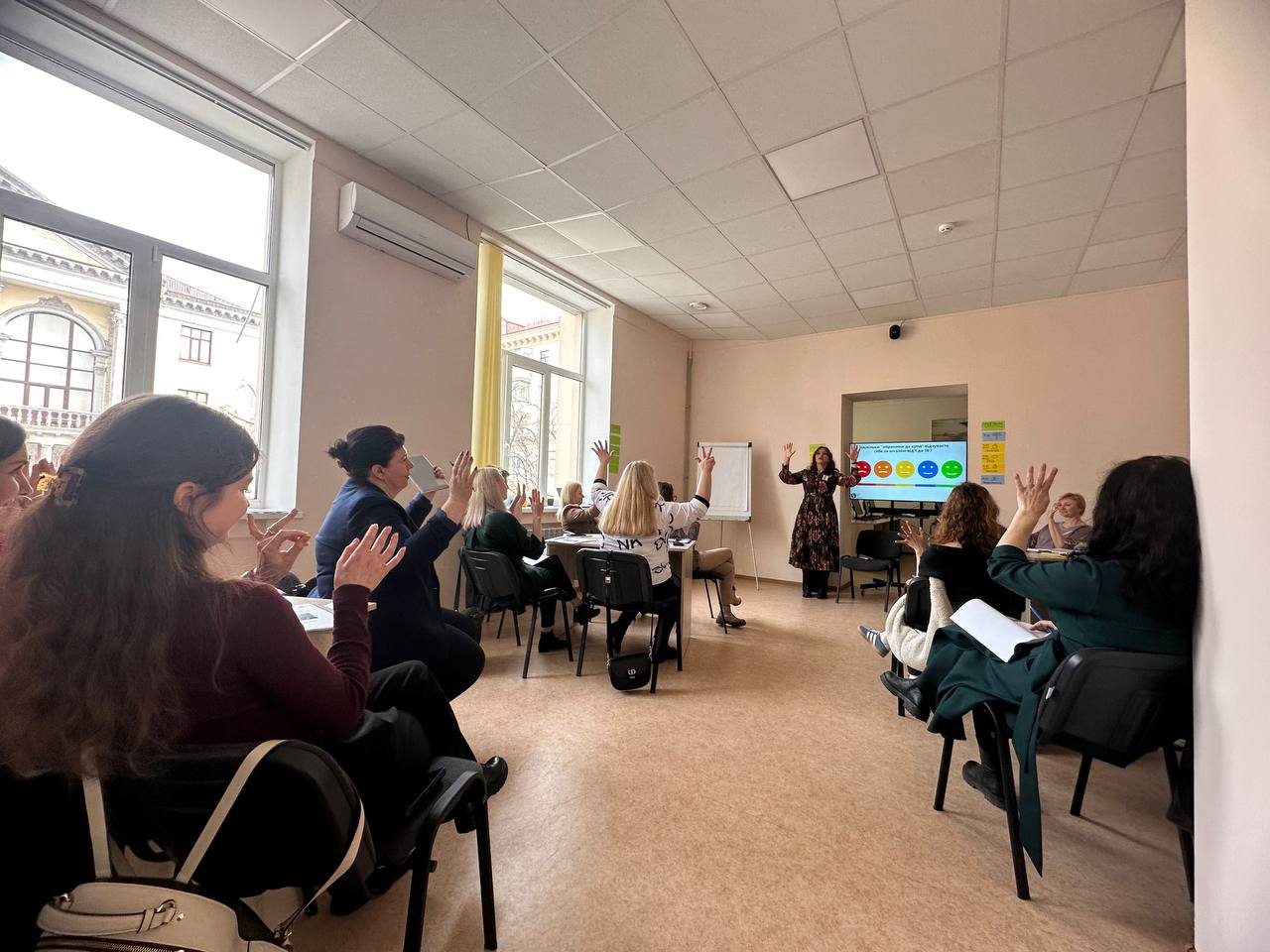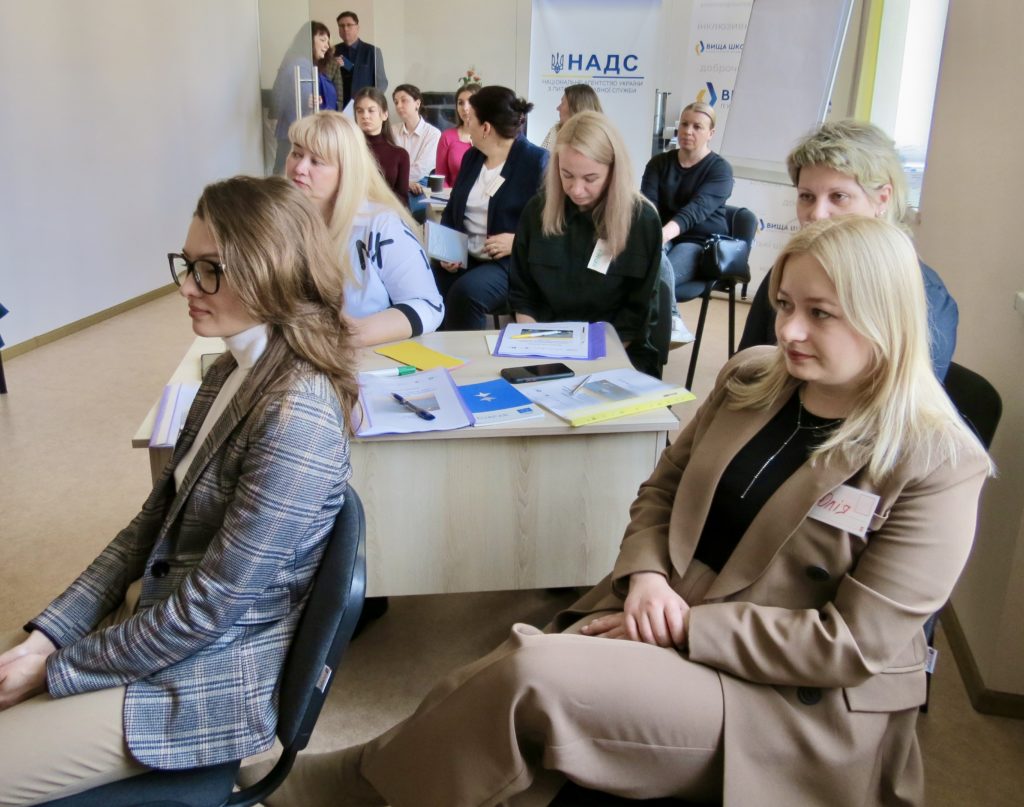
The High School, together with the National Agency of Ukraine on Civil Service and with the support of the Regional Fund for Public Administration Reform in the Eastern Partnership Countries, GIZ, is launching a series of trainings on “Supporting Mental Health in Times of War” on 28 March.
Today, psychosocial support, development of psychological competence, prevention of stress disorders and professional burnout of public servants should become one of the areas of organisational culture development.
Six such trainings are planned for employees of HR services in April.
It should be noted that this training programme was prepared based on the results of a survey of 9,843 people conducted by the High School to study the needs of public servants for psychosocial support, adaptation and development of psychological competence.
The training participants will have the opportunity to improve their mental health care skills, learn tools for peer-to-peer interaction, self-help techniques, and resilience building.
The first two-day training will be conducted by Natalia Rymar, a trainer of Mental Health for Business mental health programmes, a psychologist in positive and systemic family psychotherapy, a member of the Ukrainian Association of Positive Cross-Cultural Psychotherapy (UAPP), and a business coach.
The programme includes the study of the concepts of mental health in the workplace, stress and psychological recovery in today’s realities, as well as practical training in emotional regulation and algorithms for peer-to-peer conversations.
It should be added that the NAUCS and the High School have implemented a set of measures to provide psycho-emotional support to public servants. In particular, the All-Ukrainian educational online marathon “Emotional Resilience of a Public Servant” was held; a practical guide “Anti-Stress Money Box” and seven videos “Psycho-Emotional Support Techniques” were prepared. In addition, 4 advanced training programmes on psychosocial support, adaptation and development of psychological competence of public servants were developed and implemented.
The organisers are convinced that such training will be a valuable practical experience for introducing a culture of mental health support and creating a psychologically safe working environment.


